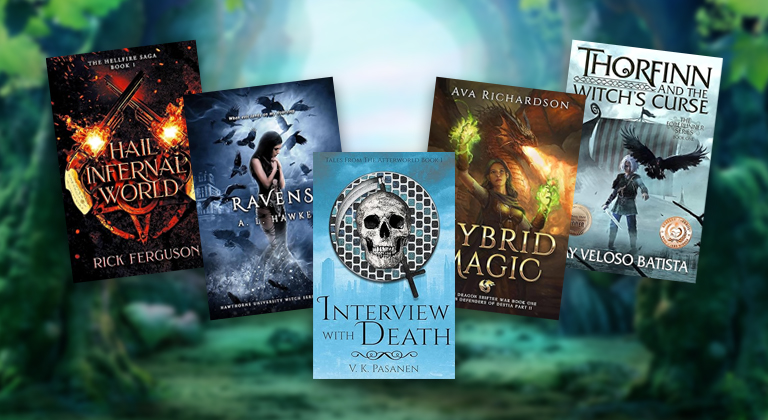One Method to Beat Writer’s Block
Last week, Ginger wrote about some of the things that prevent an author from writing, and how to fix them. But sometimes, even the most disciplined of us find that we just can’t put words to paper, even with those tips. Often it can be due to some sort of stress or change in your life, but no matter how hard you stare at that blank sheet and want to write, you just can’t force it to happen. In severe cases of writer’s block like that, when you seem to have temporarily lost your voice – your ability to come up with your own words and lay them out coherently – you may need to start right back at square one. It’s almost as if you’ve forgotten how, and need to be re-trained. Well, today’s guest blogger, Edita Anne Petrick, may have just the way to do that. To be honest, it’s a solution I hadn’t really considered before but I can definitely see the value in it. It’s a quick read, but if you’re stuck this may be just the thing that helps reset you!
A few years ago, I woke up one day and found that out of five most stressful situations for an adult, I was now hosting all of them. Loss of a Loved One. Divorce. Moving, Major Illness. Job Loss. The first thing that suffered was my writing. I couldn’t even put down a word, never mind string a sentence. Up until then, writing was a solid part of my everyday life. I had discipline. I had blocked time during each and every day when I would sit down and write—whatever work was in progress. However, suddenly I couldn’t even come up with a basic structure of a simple essay, never mind a story or much less a chapter of my work-in-progress. I told myself that it would pass. When it didn’t, I told myself that there were solid reasons—hard to write when all your ‘life’ is in storage; hard to think when two teens are hurting as bad as you; hard to construct a plot-line when you’re sitting in a hospital holding your parent’s frail hand.
I had to come out of my writer’s block but I didn’t know where to even start looking for answers. Then I ran into one of my old friends, a newspaper editor who has since retired from the business, and she said, “Write, just write.” Well, I thought, that is precisely what I can’t do.
“You don’t understand,” she said. “Go to a used book store, get a stack of books in your genre, and then put them down on the ledge you’re using to balance your laptop. Open one up, doesn’t matter what page, and start copying what is written on that page on to your screen. Don’t think, don’t examine, don’t analyze and don’t worry about anything making sense. Just let your fingers type, as correctly as possible when it comes to grammar and punctuation, what is on that page. Set a goal. Whatever you can type in twenty minutes. Then increase it to thirty and so on until you hit a solid hour of transcribing. When you finish your page or pages for that day, wipe them out and close the book and laptop for the day. No need to check or re-read anything. After about thirty pages, move on to the next book. Vary the genres but keep copying pages. Never do more than your daily goal. You may have to do this for a while, but time will come when your fingers will stop on the keyboard because your mind has taken over. That’s the time to put the books away and get back to your own writing.”
She said the mindless transcribing was to train my mind to get over the life’s hurdles and to ‘stay tuned’ as a writer. It took six months of often excruciating finger-tapping but after about a couple of months I noticed that I actually looked forward to my ‘meaningless writing’ hour. It was my training time. It took a few more months to reach the part where I didn’t want to copy anything any longer because my mind was racing ahead with my own story, but that time did come.
My friend said the exercise was called “Stay Connected through Your Fingers” and that it worked for a lot of her colleagues when they hit a wall in their writing career. I haven’t had to go back to re-training through mindless transcribing but just knowing that there is a tool that worked, is half the battle for me. These days when I get stuck with a plot or the chapter doesn’t want to move on, I don’t worry about it. I go about other things in my life that need attention until suddenly whatever bridge was missing comes up. When I think back to that horrible, horrible time in my life I don’t think about it as suffering writer’s block; I think of it as a pause the life had forced upon me. If the ‘pause’ is short, you don’t have to worry about it. But if it threatens to grow longer than you can see its end, there is a bridge you can build. It’s at your fingertips.











